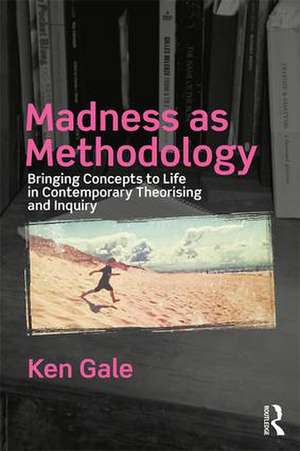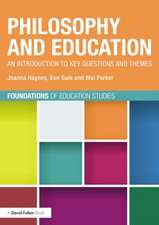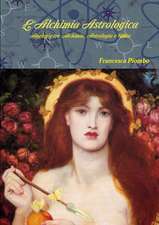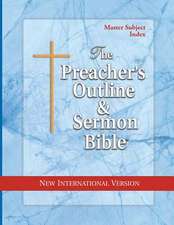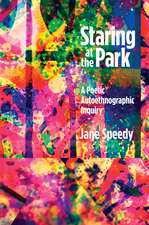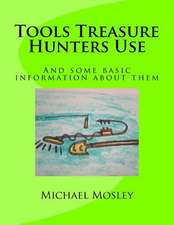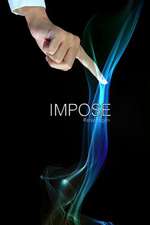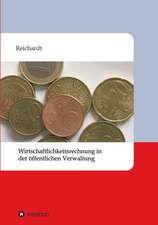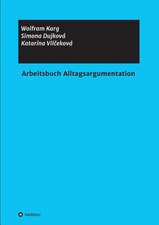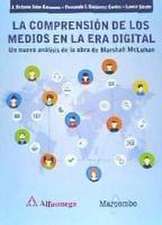Madness as Methodology: Bringing Concepts to Life in Contemporary Theorising and Inquiry
Autor Ken Galeen Limba Engleză Paperback – 23 mar 2018
Rather than using a linear chapter structure, the book is constructed around Deleuze and Guattari’s use of an assemblage of plateaus, providing the reader with a freedom of movement via multiple entry and exit points to the text. These plateaus are processually interconnected providing a focal emphasis upon topics apposite to this madness as methodology. Therefore, as well as offering a challenge to the constraining rigours of conventional research practices, these plateaus engage with topics to do with posthuman thinking, relationality, affect theory, collaboration, subjectivity, friendship, performance and the use of writing as a method of inquiry.
| Toate formatele și edițiile | Preț | Express |
|---|---|---|
| Paperback (1) | 363.00 lei 6-8 săpt. | |
| Taylor & Francis – 23 mar 2018 | 363.00 lei 6-8 săpt. | |
| Hardback (1) | 999.46 lei 6-8 săpt. | |
| Taylor & Francis – 23 mar 2018 | 999.46 lei 6-8 săpt. |
Preț: 363.00 lei
Nou
Puncte Express: 545
Preț estimativ în valută:
69.48€ • 75.50$ • 58.40£
69.48€ • 75.50$ • 58.40£
Carte tipărită la comandă
Livrare economică 21 aprilie-05 mai
Preluare comenzi: 021 569.72.76
Specificații
ISBN-13: 9781138066021
ISBN-10: 1138066028
Pagini: 208
Dimensiuni: 156 x 234 x 17 mm
Greutate: 0.29 kg
Ediția:1
Editura: Taylor & Francis
Colecția Routledge
Locul publicării:Oxford, United Kingdom
ISBN-10: 1138066028
Pagini: 208
Dimensiuni: 156 x 234 x 17 mm
Greutate: 0.29 kg
Ediția:1
Editura: Taylor & Francis
Colecția Routledge
Locul publicării:Oxford, United Kingdom
Public țintă
Postgraduate and UndergraduateCuprins
(Not a) Foreword
Acknowledgements
Introduction? On Arrival from Elsewhere
Some Stories of Emergence: Routines, Surprises And Epiphanies
Bringing Madness to Life
Conceptualising Madness as Process?
Conceptualising Madness as Affect?
Madness as A Collaborative Practice
Friendship, Madness and The Posthuman
Writing Minor Literature: Working with Flows, Intensities and The Welcome of The Unknown
Madness as Methodology as Performance
Considering (Non) Data as Event: Employing Interference as Methodology
What Can This Madness as Methodology Do?
References
Index
Acknowledgements
Introduction? On Arrival from Elsewhere
Some Stories of Emergence: Routines, Surprises And Epiphanies
Bringing Madness to Life
Conceptualising Madness as Process?
Conceptualising Madness as Affect?
Madness as A Collaborative Practice
Friendship, Madness and The Posthuman
Writing Minor Literature: Working with Flows, Intensities and The Welcome of The Unknown
Madness as Methodology as Performance
Considering (Non) Data as Event: Employing Interference as Methodology
What Can This Madness as Methodology Do?
References
Index
Notă biografică
Ken Gale works in the Institute of Education in the Faculty of Arts and Humanities at Plymouth University. His main philosophical and academic interests are to do with bringing the use of posthuman, process based forms of concept making as event to creative, experimental practices of pedagogy and research in education.
Recenzii
Treat yourself. Enter Gale’s writing, his becoming, where assertion gives way to the possible. See how the nail rejects the hammer, the thread zigzags away from the seam, the mirror celebrates its shards. Gale’s work is an assemblage of colorful fabrics and ribbons, always flowing, some wildly, some modestly, all caught in an always swirling wind. Embrace the pleasures of becoming with Gale, of moving with him and into your own terrain. His joyful methodological madness invites a performative immediacy of the moment, of movement. At the end, you may feel as I do: What pleasure surrendering to the space Gale opens!
Ronald J. Pelias, University of Louisiana, USA
Advocating madness as methodology is a tricky business: get it wrong, and you risk seeming either ‘just’ mad, or not really mad enough. Ken Gale gets it right. The book wears its erudition, its range, and its deep thoughtfulness lightly. It exemplifies exactly what it advocates – unruly resources for creative, ethical and experimental research encounters.
Maggie MacLure, Manchester Metropolitan University, UK
Madness in this book does not rest in a binary opposition to sanity; in the emergent, playful experimentation and poetry of this text, the thrust is not so much toward breakdown, but breakthrough. Gale confronts chaos, not as something to be conquered, but as a means to enhancing thought by removing it from the relentless repetitions of representation, classification and identification. In breaking loose from those old forms of humanist inquiry, the book opens out as a sparkling, embodied, sensory and unpredictable set of experiments, bringing to life the entanglements of language, of human and non-human bodies, and of desire.
Bronwyn Davies, Emeritus Professor Western Sydney University, Australia
Madness as concept, madness as breakthrough, madness as movement, sensation, madness as life-giving, madness as in-formation, madness as the more-than. Madness as the force of a non-methodology that moves to the rhythm of a methodogenesis, a movement always processual, the movement of thought itself. This is the proposition: to compose, to write, to live in the midst of what refuses to know itself in advance. Not only toward new ways of writing, new forms of composition, but toward new forms of teaching, of learning, of living.
Erin Manning, Research Chair, Relational Art and Philosophy, Concordia University
Ronald J. Pelias, University of Louisiana, USA
Advocating madness as methodology is a tricky business: get it wrong, and you risk seeming either ‘just’ mad, or not really mad enough. Ken Gale gets it right. The book wears its erudition, its range, and its deep thoughtfulness lightly. It exemplifies exactly what it advocates – unruly resources for creative, ethical and experimental research encounters.
Maggie MacLure, Manchester Metropolitan University, UK
Madness in this book does not rest in a binary opposition to sanity; in the emergent, playful experimentation and poetry of this text, the thrust is not so much toward breakdown, but breakthrough. Gale confronts chaos, not as something to be conquered, but as a means to enhancing thought by removing it from the relentless repetitions of representation, classification and identification. In breaking loose from those old forms of humanist inquiry, the book opens out as a sparkling, embodied, sensory and unpredictable set of experiments, bringing to life the entanglements of language, of human and non-human bodies, and of desire.
Bronwyn Davies, Emeritus Professor Western Sydney University, Australia
Madness as concept, madness as breakthrough, madness as movement, sensation, madness as life-giving, madness as in-formation, madness as the more-than. Madness as the force of a non-methodology that moves to the rhythm of a methodogenesis, a movement always processual, the movement of thought itself. This is the proposition: to compose, to write, to live in the midst of what refuses to know itself in advance. Not only toward new ways of writing, new forms of composition, but toward new forms of teaching, of learning, of living.
Erin Manning, Research Chair, Relational Art and Philosophy, Concordia University
Descriere
Taking a broadly ontological view, Ken Gale explores the way research is conceptualized, and what impact this has on the research output. The idea of madness is seen and deconstructed through the lens of the ‘rhizomatic’ work of Deleuze and Guattari.
